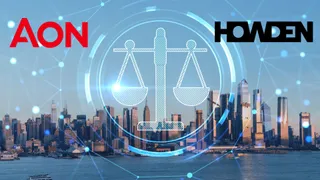
ILS will learn from 2017 cat losses
Although the insurance-linked securities (ILS) sector responded well to the cat losses of 2017, lessons will be learned in the aftermath of those events as the sector continues to mature and evolve, Bill Dubinsky, head of ILS at Willis Re, told Monte Carlo Today.
Dubinsky explained that both cedants and investors will have made assessments of how the structures performed in the aftermath of the events and whether changes need to be made.
“The response to 2017 was pretty good but there will always be lessons learned—things to tweak and improve,” he said. “It is certainly better to be learning after a near miss than a totally unexpected scenario and very big losses.
“It works both ways: some investors might like some adjustments one way, cedants another. It will all be negotiated now in future deals.”
One example he offered is that some investors may be tempted to renegotiate their terms to avoid capital becoming needlessly trapped in certain types of structure going forward. He stressed, however, that many people define trapped capital incorrectly.
A loss does not constitute trapped capital, or where the structure has simply not matured yet. The term should be applied only to instances where there is uncertainty over a loss, meaning the collateral is retained in the structure after its expiry date to address the uncertainty. Capital held after maturity to pay nearly certain losses is not really trapped.
“There was a lot of talk about trapped capital but there were very few true instances of this occurring, in my opinion,” he said.
“The events will inform investors. They need to consider what happens when there is a very big loss, such as a Californian earthquake, and its true scale may not be established for some time—but it happens just days before a structure is due to expire.
“There will be more vigilance over establishing clarity on such scenarios in the aftermath of 2017.”
Such changes also mean the continued maturity of a market that is still expanding its scope and the type of risks it touches—especially when the term ILS is applied more broadly to any form of alternative capital.
Dubinsky suggested the market will continue to grow steadily—but rather than any big breakthrough, this will occur incrementally and across many risks and territories.
He suggested, for example, that recent changes to regulations in London and Singapore could prove significant to the market’s growth. He believes the latter in particular could help the ILS sector take on more risks in Asia over time.
“London has launched its own structure and Singapore has reinvigorated something it has had for a while. We are neutral when it comes to jurisdictions but it would be good to allow some of our clients to execute deals in a domicile of their choice that is perhaps closer to where they are based.
“The quality of both regulators is also significant, and that engenders confidence in the ILS sector.”
Meanwhile, Dubinsky said, based on its broadest definition alternative capital is now being put to work in more and more parts of the industry and in ever more sophisticated ways. “There are very few risks not benefiting in some way from this now, whether that is indirectly or by dealing directly with sidecars or funds,” he concluded.
Already registered?
Login to your account
If you don't have a login or your access has expired, you will need to purchase a subscription to gain access to this article, including all our online content.
For more information on individual annual subscriptions for full paid access and corporate subscription options please contact us.
To request a FREE 2-week trial subscription, please signup.
NOTE - this can take up to 48hrs to be approved.
For multi-user price options, or to check if your company has an existing subscription that we can add you to for FREE, please email Elliot Field at efield@newtonmedia.co.uk or Adrian Tapping at atapping@newtonmedia.co.uk
Editor's picks
Editor's picks
More articles
Copyright © intelligentinsurer.com 2024 | Headless Content Management with Blaze

